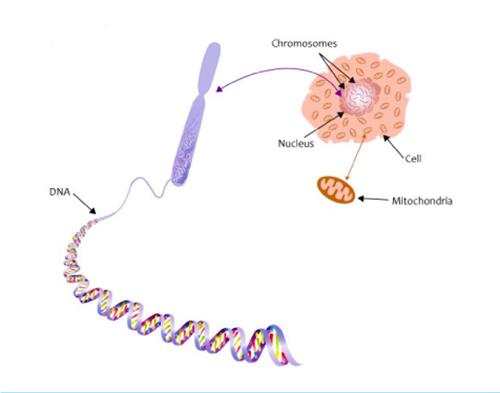The data-miners have found a new vein of data, the UK Biobank, which contains genetic information on about 500,000 of their citizens. I presented one of their studies on the impact of coffee and caffeine on our health and today's research seeks to shed some light on that oldest of problems, nature or nurture.
The question posed was the interaction of lifestyle choices and our genes; in this case looking at cardiovascular disease and diabetes. The study was restricted to Caucasians of British descent whose entire genomic profile had been captured by the UK Biobank, a voluntary program, so generalizing the results and conclusions are difficult. Polygenic patterns were identified for coronary artery disease, atrial fibrillation (an irregular heartbeat), stroke, high blood pressure and diabetes.
These polygenic risk profiles, which have a variety of names, gather genes and single nucleotide polymorphisms, alterations in a single base pair, previously identified in the scientific literature as associated with particular outcomes to create risk groups. As I have mentioned previously, they do help stratify but typically only “explain” about 15% of a health outcome, in this case the incidence of cardiovascular disease or diabetes. Lifestyle was categorized in comparison to the American Heart Associations guidelines for nutrition and exercise as ideal, intermediate or poor. [1] The study looked at 339,000 participants, about 56 years old, and slightly more female than male. 20% had ideal lifestyles, 5.2% poor, and the majority, like the rest of us, in between. Now none of these patients had any of the health problems under consideration when the study began, and six years later small percentages had new health issues, 4.8% had high blood pressure, 3.0% developed coronary artery disease, 2.1% developed atrial fibrillation, 0.9% stroke, and 1.6% diabetes.
- The higher genetic risk group had a greater incidence of all of the target diseases. Intermediate risk and low-risk groups showed little difference in the frequency of the targets. So at least for the higher genetic risk profiles, we identified a change in health outcome.
- Poor lifestyle increased the risk of an adverse outcome in each of the genetic risk groups. The poorest results were those individuals with the highest risk and worst lifestyle. The hazard ratio, a way of explaining increased risk rose four-fold for coronary artery disease and hypertension, and fifteen fold for diabetes when compared to the low genetic risk, ideal lifestyle cohort.
- The findings of those with intermediate genetic risk, and remember that is the majority, you and me, were essentially the same as the low-risk genetic group. The most significant effect was solely due to poor lifestyle.
- There were no significant additional differences based upon gender.
To summarize, the researchers found no interactions between genetic risk profiles and lifestyle; the role of genes, at least based upon our current knowledge of genetic risk made little contribution to health outcomes for cardiovascular disease and diabetes. The fault does not appear to lie in our genes but our choices. It is neatly summarized by a thought attributed to Hippocrates: “If we could give every individual the right amount of nourishment and exercise, not too little and not too much, we would have found the safest way to health.”
[1] In order to be a poor lifestyle you required 3 poor choices, e.g. currently smoking, BMI >30, no regular exercise and less than half of the following: increased consumption of fruits, vegetables, whole grains, (shell)fish, dairy products and vegetable oils; and reduced or no consumption of refined grains, (un)processed meats and sugar-sweetened beverages.
Source: Associations of Combined Genetic and Lifestyle Risks with Incident Cardiovascular Disease and Diabetes in the UK Biobank Study JAMA Cardiology DOI: 10.1001/jamacardio.2018.1717




